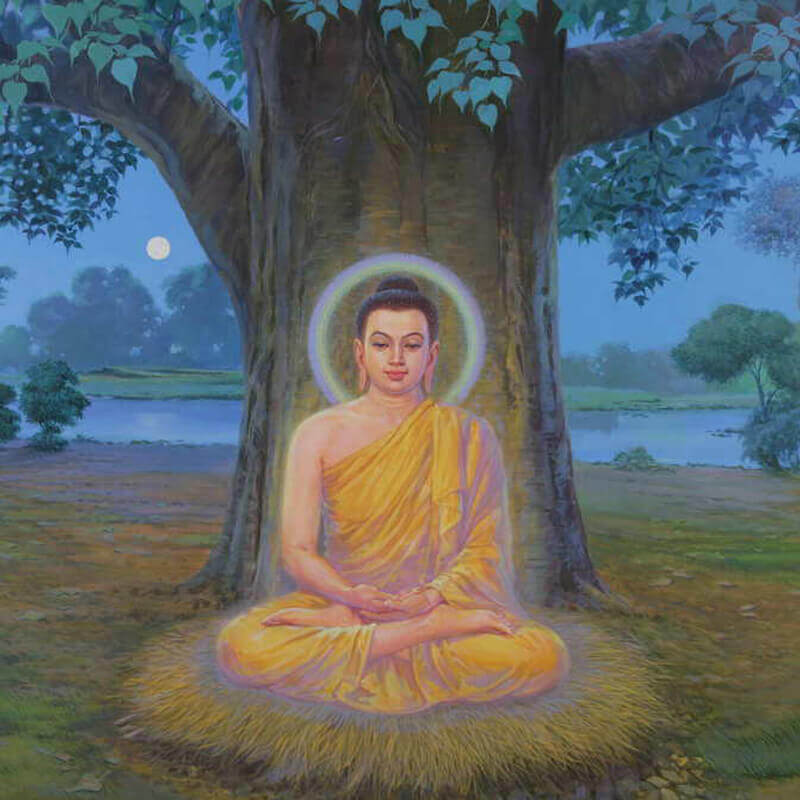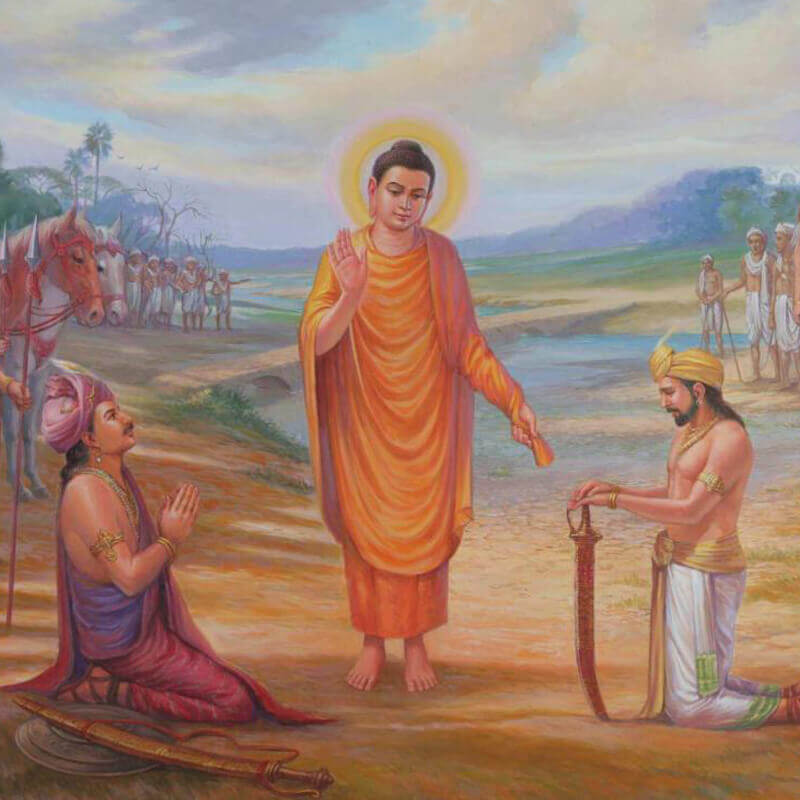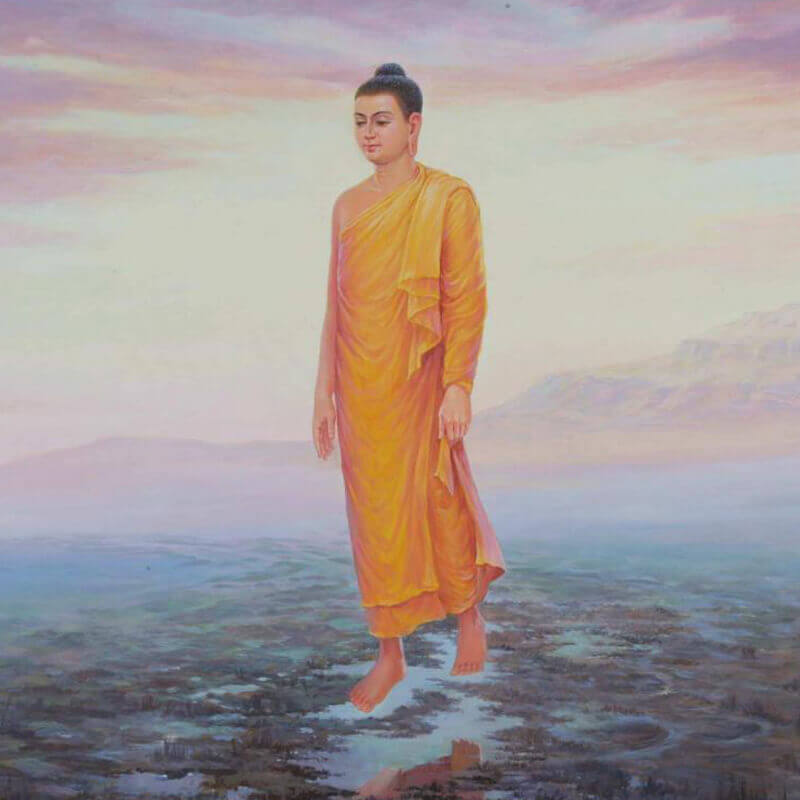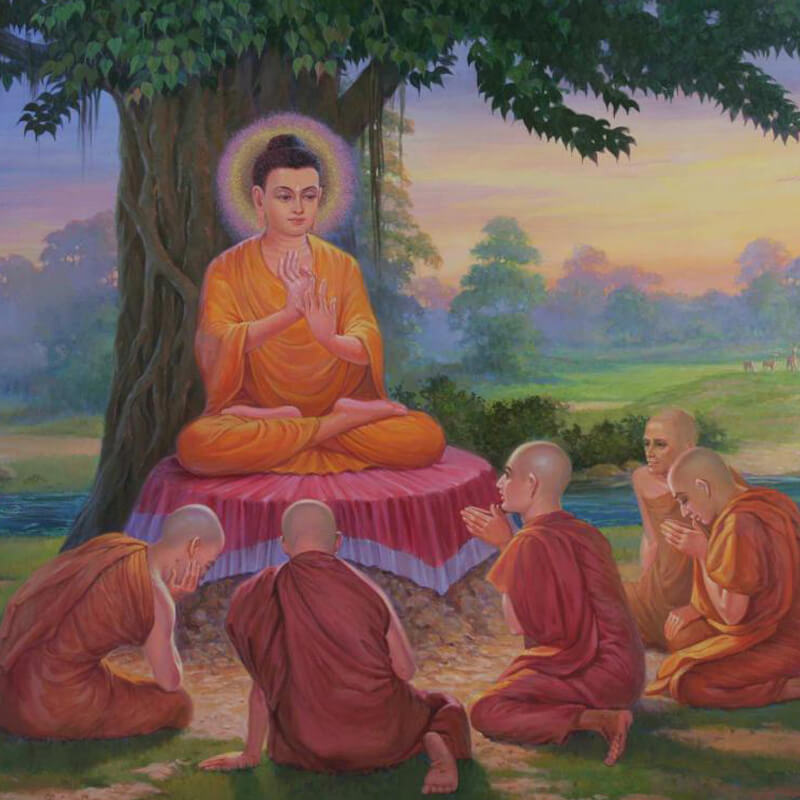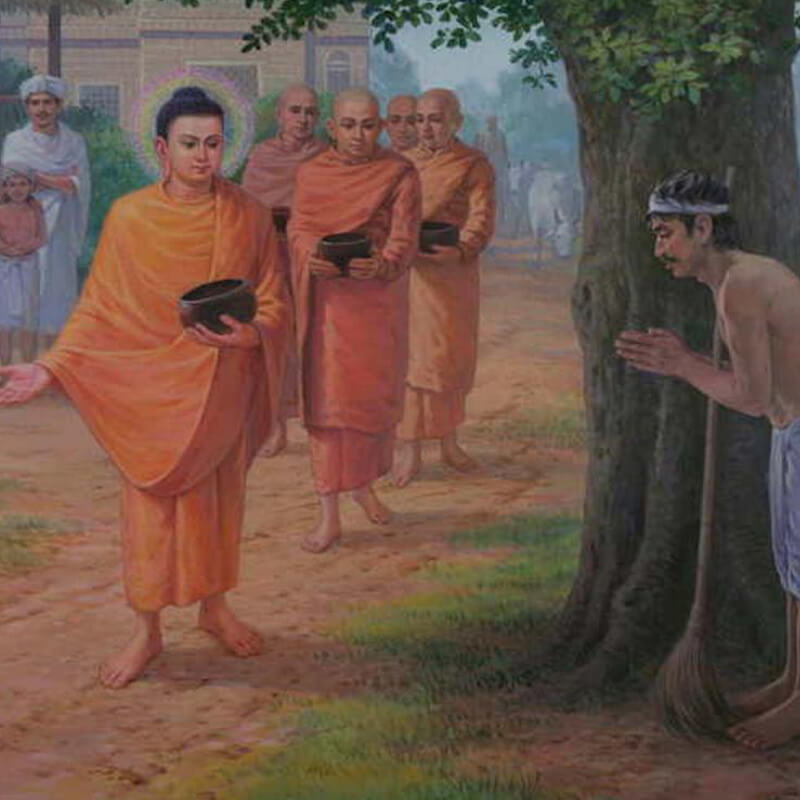Professions, jobs and castes had their own and different high and low, superior and inferior categories-
1.Sudra- The low born
2.Caṇḍāla- The corpse burners
3.Bhangi- The sweepers
4.Cammāra- The cobblers These groups were regarded as low castes.
1.Brāhmaṇa
2.Kshatriya- The Warriors
3.Vaiśya- The Traders were considered as Upper castes.
Similarly, Brāhmanas were considered upper and lower, depending on their clans.
Inferior clans:-
1.Kosiya Gotra
2.Bhāradwāja Gotra
Superior clans:-
1.Gotama Gotra
2.Moggalāna Gotra
3.Kaccāna Gotra
4.Vāsiṭṭha Gotra
Handicrafts and artisan skills were also divided in to superior and inferior groups.
Job skills and Handicrafts considered being superior:-
1.Writing skills
2.Printing skills
3.Book-keeping, accountancy
Work considered as inferior:-
1.Making objects with bamboo/ cane
2.Pottery - making earthen pots and utensils
3.Leather craft (making shoes and other things with animal skin)
4.Nāpitas - Barbers (those who cut hair)
Jobs considered to be extremely low and menial were:-
1.The job of lifting and cleaning faces and human waste.
2.Removing and cleaning garbage trash and waste.
Professions regarded as lofty were:-
1.Agriculture
2.Business and trading
3.Cattle rearing.
The Pali Cannons list the following five as the low races and the work done by these clans were considered inferior/ base:-
1.Caṇḍāla kula- burning corpses in the crematorium
2.Nesāda kula- hunting birds and animals
3.Venakula- cleaning lavatories
4.Rathakāra kula- making things with the skin of dead animals
5.Pukkusa kula- removing and cleaning garbage
Similarly people performing the following jobs were also considered inferior:-
1.Nālakāra- basket makers- making baskets etc. with bamboo.
2.Kumbhakāra- Potters- making clay pitchers etc.
3.Pesakāra- Weavers- weaving clothes
4.Cammakāra- Those who made leather articles
5.Nāpita- Barbers- those who cut hair.
The higher castes would consider themselves becoming unclean, if even the shadow of the lowest castes fell on them. If by chance they were touched by such a shadow, they would, out of anger, even beat them up. So the very inferior classes would move around very carefully and hesitantly, whenever they came to the towns; ensuring that their shadows did not fall on anyone.
The Lord Buddha took revolutionary steps amidst such shocking / horrible conditions. He included the lowest of low castes in his Sangha. One who became a part of the Sangha would automatically become venerated. The king revered him and the royal-officials honored him; the business magnates and the bankers revered him; and the Brāhmanas honoured him. In this way the Buddha took a major step to uplift the lower castes.
The Lord Himself did not believe in the caste system. Having joined the Sangha no Bhikkhu was discriminated on the basis of his caste. Bhikkhus, having joined the Sangha, would also go for alms to the homes of all high and low castes. In those days, people were habituated to address the lower castes at times as Candāla and Vasala. If any new Bhikkhu addressed another in a similar fashion, then it was declared an offense as per the Vinaya laid by the Lord.
An incidence from those days: Prakriti, a young sixteen year old untouchable girl was filling water for her family from the wells meant for the untouchables. Poverty stricken, she was attired in dirty and crumpled, torn and old clothes. Ananda, a disciple of the Buddha, was coming towards her. Ananda was also born in a Kshatriya clan. He was fair complexioned and a rich man with an imposing personality. He was also the first cousin of the Lord. It was the season of scorching summer. His throat was parched by thirst. Seeing the girl filling her pitchers by the well, he requested her for a drink of water. The untouchable girl was bewildered. She felt, "Noticeably, though a Bhikkhu, this person is certainly from one of the upper classes. But, he is unaware that I belong to a family of untouchables and this well is meant for the untouchables." So she informs Ananda, "I am from a lower caste and I cannot give this water meant for the untouchables, to a person of the higher clans."
Ananda tells the untouchable girl "Sister, I asked you for water, not your caste."
Persuaded by Bhikkhu Ananda, the bewildered girl hesitantly gave him water. Having rapturously quenched his thirst, the Bhikkhu left from there.
Suddenly a thought came to the mind of the untouchable girl. If this young man of a high caste has taken water from my hands, certainly, he will also agree to make me his better half. She approached Bhikkhu Ananda hastily and presented her proposal. The Bhikkhu immediately declined. She was very disappointed. Then Ananda explained to the untouchable girl, "I do not refuse your proposal because of caste discrimination. I have taken the vow of life-long celibacy [to lead a holy life] and so am incapable of accepting your proposal." He further told her, "our Great Compassionate One, the Buddha, has given refuge to all human beings. You too, go and seek refuge in the Buddha. The Lord gives refuge to all, even those considered inferior castes by society.
There is no discrimination on caste or creed over there. Having taken refuge in the Buddha, many lower castes have by virtue of Vipassana meditation, become Noble. Those who are today looked down upon, people start respecting and paying homage to them. Go and unhesitatingly seek refuge in the Buddha. There are many Sadhavis [female meditators/nuns] there and Mother Mahāpajāpati will take proper care of you."
Hearing this, the untouchable girl Prakriti felt happy. She then went and took refuge in the Buddha. She was given Vipassana and in due course became a meditator/nun.
Once the Buddha was on his alms rounds with his Bhikkhu Sangha on the high way of Rajgir, the capital of Magadha. The city sweeper, Suneet, was at that time cleaning the roads with his broom. Being born in a family of destitutes and considered to be untouchable, the thought arose in his mind, "my shadow should not fall on the Buddha." So, very hesitantly, he stood aside with folded hands. The Lord read his thoughts. Seeing the sweeper Suneet, a victim of the unforgiving, ruthless society's twisted ways; the Lord's heart was filled with compassion. He beckoned him and along with his Bhikkhu Sangha, brought him to the Vihara in Rajgiri's Venuvana. The Buddha showed him the way to practice Vipassana meditation. Sweeper Suneet was ordained to the Sangha. He started practicing Vipassana in the forests and became an Arahant, a fully liberated one. He truly became a Brāhmana from a sweeper.
Similarly Sopaka, a child born in the Candāla clan, became an orphan at the age of four. Stricken by poverty, his uncle felt he was a burden. At the age of seven, feeling extremely annoyed, his uncle tied him hard to a corpse and left him in the crematorium, to be devoured and eaten by wild animals. The Great Compassionate One saw this incidence. He sent a Bhikkhu to free Sopaka and had him brought to the Vihara. There he was ordained and got his object of meditation. In due course, the child Sopaka, practiced diligently and became an Arahant.
History notes that Baba Saheb Ambedkar took another major step. When he drafted the Constitution of India, he left no scope for the discrimination of high and low castes. A human being is a human being. He created scope for those considered inferior castes to get educated. The lower ranks of the society went for higher studies and even became secretaries in the Government. Who would then call them inferiors? In this way Baba Saheb Ambedkar made a significant contribution by breaking the barrier of caste discrimination.
Unfortunately the system of casteism, superiority, inferiority, and untouchability exists even today to some extent in the villages. It has not been eradicated.
I remember, while living in Burma [Myanmar], I was born and brought up in a severe orthodox family. There I had seen that not only sweepers and cobblers, but also many others were considered as low castes. We were forbidden to even drink the water touched by such people. Baba Saheb brought about a lot of changes to this. But still, society keeps considering the low borns as inferiors and the upper castes as superiors.
Just like the Lord Buddha brought about a major revolution by ordaining the lower castes to the Sangha, so also, Baba Saheb Ambedkar gave them respectability by spreading education. It is a misfortune to the nation, that it has not been eradicated completely.
Now Vipassana has taken another step forward. People of all castes and creeds join Vipassana courses. No one is discriminated as superior or inferior. All stay as equals and practice together. All sit and eat together, reside together. Now the situation is such that, in Vipassana, a large number of people who are called Dalitas, have been trained further and established as Teachers. When now a person of the Dalita class sits on the Dhamma Seat, the person is not a Dalita, but a teacher of Dhamma. Meditators who come for a course, bow to the teacher, irrespective of whether they are a Brāhmana, a Kshatriya, or a Vaiśya.
They pay their respects to the teacher and learn Dhamma from him. There is no scope for caste discrimination in the teachings of the Buddha. The knowledge of Vipassana meditation and practice is the important essence and is available for all. Vipassana is aiding in breaking these barriers in a big way. Let us see, how much this transforms the society as a whole! Only when this misfortune of the society and the country is eradicated, will there be happiness. Only then will there be welfare!

